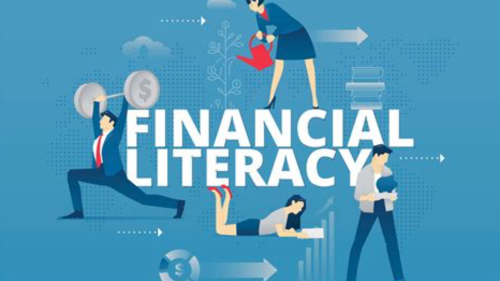April: Financial Literacy Month
Posted by

 npocpas1
–
npocpas1
–
 npocpas1
–
npocpas1
–


About twenty two years ago, April was selected as National Financial Literacy month by the Jump$tart Coalition for Personal Financial Literacy. This group primarily focuses on promoting the financial curriculum to young people.
Financial literacy and knowledge is essential to comprehending how to save, earn, borrow, invest, and protect your earnings effectively. As a parent or mentor, you should be teaching financial literacy at a young age. When children and young people are taught about finances, they are better equipped to avoid bankruptcy and financial debt in the future.
With the recent pandemic, young people need this guidance more than ever. Life is so clearly uncertain, and it's essential to be prepared for a rainy day. According to the Financial Industry Regulatory Authority, 66% of Americans are financially illiterate. It's important to teach young people to be prepared for the long term and to work on their spending habits. Maybe you already have the intention to share such knowledge with loved ones, but feel overwhelmed by such a vast subject matter.
Regardless of how you feel, here are some great tips to share with young people in your life:
Create a budget: Try using an Excel sheet, Google sheet, an app, or old school paper and pen to track monthly expenses, both necessary and unnecessary, versus monthly income.
Pay yourself first: After choosing a savings goal, pay money toward this goal with every paycheck before spending money anywhere else. This strategy forces you to make sure bills and debts never get out of hand. Additionally, it holds you accountable on your goals.
Begin building credit: It's essential to help folks build credit, try helping those who are of age open a credit card. The third most crucial way to increase your credit score is the length of your credit history. This is why we see the majority of folks with near perfect or perfect credit scores being Gen X or Baby Boomers. In addition to this, a credit card is a great way for a young person to learn financial responsibility.
Get your credit report and score: Every year, consumers are able to seek a credit report, free of charge from Experian, Equifax, and TransUnion. This is a great way to monitor any inconsistencies and you can do it three times a year, once from each company.
Manage Debt: Minimize spending and maximize repayments. Consider doing this in a meticulous fashion, by paying off debts with the highest interest rates first. There is even debt-counseling for those struggling more than others.
Think Future forward: Take advantage of your employer’s 401(k) retirement savings account by inputting the maximum amount, especially if a match program is offered. Regardless of the situation, it is a great idea to open up an individual retirement account (IRA). If possible, begin seeking advice from financial professionals about your future.
With these tips, some knowledge on common financial terminology, and whatever life experience you have to offer, the young people in your life are being set up for financial success. Have these conversations today to help the future of the young people in your life.
| Free forum by Nabble | Edit this page |